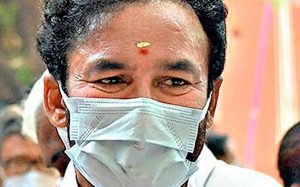Privilege Motion Against Minister:

Congress chief whip in the Rajya Sabha Jairam Ramesh has moved a privilege motion against Culture Minister G. Kishan Reddy over the appointment of former MP Tarun Vijay as the Chairperson of the National Monuments Authority, a post for which, Mr. Ramesh said, Mr. Vijay was not qualified.
- The Ancient Monuments and Archaeological Sites and Remains (Amendment and Validation) Act, 2010 says that the Chairperson of the NMA should have “proven experience and expertise in the field of archaeology, country and town planning, architecture, heritage, conservation architecture or law.”
- However, the Government had appointed a chairperson whose educational and professional background does not meet the requirements o fa law passed by Parliament in March 2010.
- Parliamentary Privileges are certain rights and immunities enjoyed by members of Parliament, individually and collectively, so that they can “effectively discharge their functions”.
- Article 105 of the Constitution expressly mentions two privileges, that is, freedom of speech in Parliament and right of publication of its proceedings.
- Apart from the privileges as specified in the Constitution, the Code of Civil Procedure, 1908, provides for freedom from arrest and detention of members under civil process during the continuance of the meeting of the House or of a committee thereof and forty days before its commencement and forty days after its conclusion.
- When any of these rights and immunities are disregarded, the offence is called a breach of privilege and is punishable under law of Parliament.
- A notice is moved in the form of a motion by any member of either House against those being held guilty of breach of privilege.




